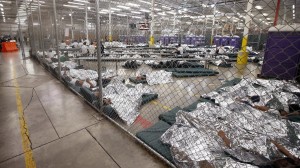Federal Judge Ready To Close 3 Immigration Detention Centers
San Francisco Leads On Civil Gideon Moment
California Civil Case Against Bill Cosby Clears Big Test
Public Interest Attorney Notes Amicus Role For Immigration
Writing for the “Above The Law” website, attorney Sam Wright makes a case for increasing the role that amicus briefs might play for immigration court policies. Sam Wright, described as “a dyed-in-the-wool, bleeding-heart public interest lawyer,” focuses on the specific case of Cristoval Silva-Trevino, the subject of a Texas-based case with national implications.
A federal circuit court recently issued the latest guidelines in a years-long struggle over the case, but Wright makes the point that amicus briefs played an important role. For example, the Southern Poverty Law Center offered its opinion, along with another organization that the Center considers a hate-associated group.
See how it plays out, read here.
Trangender Issues Loom As New Court-Case Frontier
Uber Car-Under Fire From Coast To Coast
AP Tells Of ‘Border Kids’ Trapped In Immigration Court Hell
The Associated Press reports on 1-year-old Joshua Tinoco, who pauses while playing at his relative’s home in Los Angeles. Writing from Los Angeles, Amy Taxin tells the story of a 1-year-old facing deportation even as his mother is allowed to stay.
Taxin writes that “… at a brief hearing, a government lawyer tells the teenage mother that her son is an immigration enforcement priority for the United States and should be sent back to his native Honduras even though she is being allowed to stay and seek a green card.”
The story goes behind the numbers to outline human conditions. It also reminds us of some staggering numbers: More than 57,000 unaccompanied children from El Salvador, Guatemala and Honduras arrived on the border in the last fiscal year, and since then another 18,000, government statistics show. Immigration courts have fast-tracked the cases in a bid to stem a growing backlog.
It’s an AP story, and they have legs. Let’s hope this one gets around.

